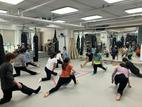After being affected by the COVID-19 pandemic, many registered churches in various places have implemented the official “double suspension” measures, which refers to suspending both the opening of places of worship and collective religious activities. So once again in-person gatherings are suspended, meaning that believers cannot go to churches to participate in religious activities such as worship and praise, listening to sermons, and giving tithes and offerings.
Some rural pastors, elders, and other leaders of several township churches shared a general understanding of their situation.
The churches that have suspended on-site gatherings can be roughly classified into five situations. The first of these situations is where many churches have turned to online services and ministries, including preaching, worship and praise, daily devotions, announcements, and offerings. The second is where churches do not host any virtual religious activities at all. In reality, pastors do not preach, or lead the congregation in daily devotionals, but they only "one-on-one" forward sermons by seminary pastors, teachers or other churches’ pastors. In the third category of churches, there are forms of "group activities", which means a few people organize small-scale Bible studies, devotions, prayers, and listening to sermons. In the fourth type of circumstance, churches organize visitation programs, through which contacts with believers are deepened. In the fifth case, unfortunately, the pastors of some churches become simply "couch potatoes" and are too frightened to do anything at all.
A common problem in many of the churches under closure is that their offerings have decreased. In some churches, full-time pastors have not been paid for several months, but their services have not suspended.
Once the Administrative Measures for Internet Religious Information Services have been strictly enforced, Christians may not gather on the internet without a valid license. The past anti-pandemic experiences show us that even if a church reopens, that would last for a while. It is unknown when it will be shut down again as an outbreak would reoccur from time to time under the dynamic zero-COVID policy.
Next, I would like to focus on group activities and visitation ministry, as important on-the-ground supplemental channels for churches in lockdown.
Activities in small groups
The "group activities" may also be "family gatherings" or "relatives and friends gatherings". In these group activities, there are a few participants, just a small number of believers who are relatives, neighborhood residents, or just family members. The venues are usually around the residence, such as the front and rear courtyards or their homes. The form of gathering is relatively simple, not so "formal". But the gathering is full of family love and friendship. As simple as a family group gathering, it essentially consists of Bible reading, prayer, worship and praise, preaching, sharing, and offering (through QR code payment). Sometimes they gather for dinners, during which all participants joyfully communicate with each other, praying before and after each meal.
Some churches have dozens of such "groups", which many believers have joined. The groups are roughly organised by area. For example, it is split into eastern, western, northern and southern areas. The pastoral staff and leading believers of some churches will go to visit these groups according to work and area allocation, mainly for sharing, fellowship, worship and praise together. Believers will also make donations to the church either in cash or by QR code payment. These pastoral co-workers and believers who go to the "groups" are very hard-working, as they have to meet several "groups" across these villages within one day.
Visitation programs
During the "double suspension" period, given that face-to-face services are not possible, the small-scale visitation ministry is being carried out in various places.
Besides members in the churches’ nursing homes, the main target groups of the visitation programs are those who are old, weak, sick, disabled, in difficulties, believers whose family members have returned to their heavenly homes, as well as those who are feeling confused in high-pressure environments,.
The main visitation team is a small number of pastoral workers led by the senior pastor of the church or local CC&TSPMs, following the requirements of epidemic prevention. Some visitors bring money, some bring gifts, and others bring both to the target believers.
The visit frequency is either regular or irregular. Some visiting teams do the ministry on Sundays or holidays, such as Christmas, Easter, National Day, and the Spring Festival.
During each visit, the visitors mainly engage in comforting believers, communicating, sharing testimonies with them,and learning about their situation. Apart from cleaning the venues, they also help elder members or those with limited mobility wash their bodies, hair and feet, cut nails and hair, as well as serve in canteens.
Setting off at about five o'clock in the morning, some visitors can only finish their visits until eight or nine o'clock in the evening.
Some rural churches have been unable to meet in person for a long time, causing a decline in the church’s contributions. Some full-time pastors have not been paid for several months, as those churches do not have much money left. Even not being paid, some pastoral staff have to take out money from their family savings to buy gifts for visitors. They pay out of their own pockets for engaging in the visitation ministry and the epidemic prevention efforts as responding to the call from the society.
Under the lockdown policy based on the epidemic conditions, it is necessary, beneficial, and feasible for churches to nurture the groups o and visit believers. However, what should we do when there is another lockdown again and even online ministry is not allowed?
(The author of this article is a special contributor for the Gospel Times)
- Translated by Shuya Wang












